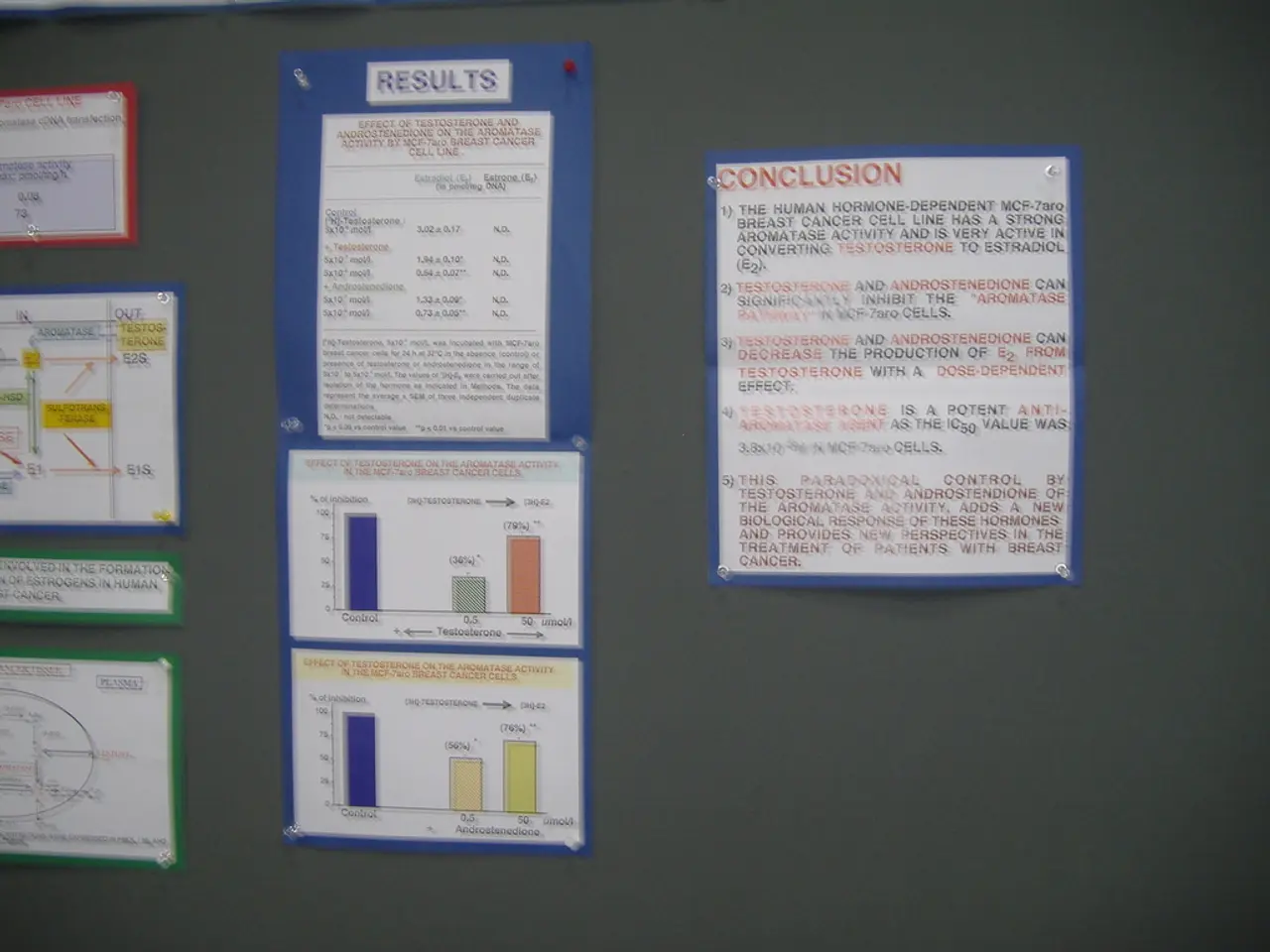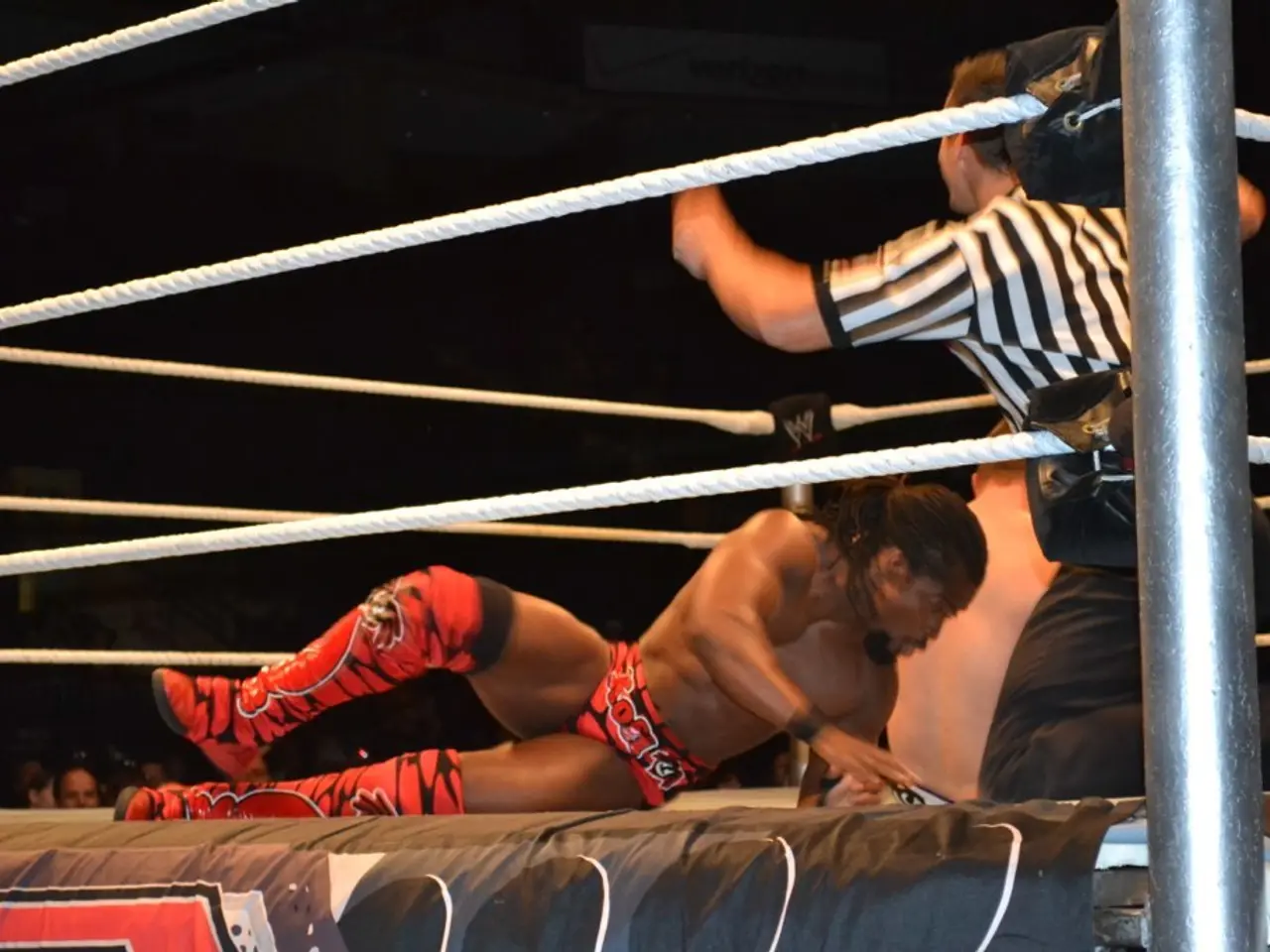Trump advocates for relinquishing control over the Federal Chairman's position. - Federal authorities to assume control over the Federal Reserve chairman
The US Federal Reserve, known for its strong institutional independence, has been under the spotlight recently due to the ongoing tensions between President Donald Trump and Federal Reserve Chair Jerome Powell.
In a surprising turn of events, President Trump announced an open seat on the Fed board, potentially paving the way for new appointments. However, it is important to note that Trump nominates the board members who make up the majority of the Federal Open Market Committee (FOMC), the body responsible for setting interest rates.
Despite public pressure from President Trump to lower interest rates to boost the economy, the FOMC operates with a deliberate insulation from direct political control. This independence is crucial for making monetary policy decisions based on economic data and outlook rather than political considerations.
In the latest FOMC meeting, two of the eleven members - Michelle Bowman and Christopher Waller - advocated for a rate cut, which is rare. This dissenting voice, however, is designed to ensure a balanced approach to monetary policy, rather than a unilateral decision.
The legal status of a US President removing the Fed chair is not clear, and there are legal hurdles for such an action. President Trump has repeatedly criticized Chair Powell and threatened to fire him, but these threats have not materialized.
Fed Chair Powell and others emphasize that an independent central bank arrangement has served the public well and should be respected, specifically to avoid political interference in interest rate decisions. The Fed's key mandate is to maintain macroeconomic stability by balancing inflation and unemployment, which requires data-driven decisions rather than political directives.
Interestingly, the Fed has kept interest rates stable, currently ranging between 4.25 and 4.5 percent. The Fed's head does not set interest rates alone, and the independence of the FOMC ensures that decisions are made collectively, avoiding any potential political bias.
In a recent development, it was unexpectedly announced that Fed board member Adriana Kugler would be stepping down, effective the following Friday. Kugler's departure could potentially increase the chances of dissenting votes at future FOMC meetings.
Rumours suggest that Christopher Waller, who advocated for a rate cut in the latest meeting, is being considered by Trump as a possible successor to Powell. The Fed Chair's term ends in May next year, and the appointment process for his successor is expected to begin soon.
As the election year approaches, observers believe that under Trump's pressure, more members of the FOMC may deviate from the majority's course at the next meeting. However, the FOMC's independence remains a crucial safeguard against political interference in monetary policy decisions.
In a recent post on Truth Social, President Trump expressed his desire for Jerome Powell to step down, similar to Adriana Kugler. Trump wrote, "THE DISSENTING VOICES WILL ONLY GET LOUDER." Despite this, the Fed remains committed to its mandate of maintaining macroeconomic stability, regardless of political pressure.
- The ongoing tensions between President Donald Trump and Federal Reserve Chair Jerome Powell have brought the President of the United States' influence on the Federal Reserve's policy-and-legislation to the foreground, with potential impacts on the general-news landscape.
- Despite public pressure from President Trump to lower interest rates, the President of the United States of America does not have direct control over the Federal Open Market Committee (FOMC), which operates with deliberate insulation from political considerations in setting interest rates.








